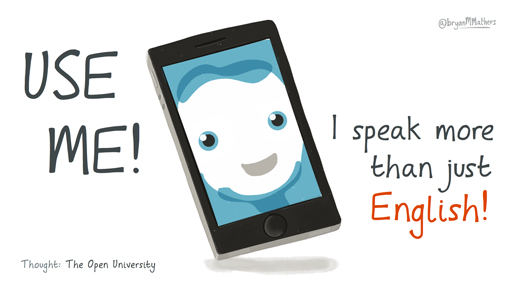3 Creating a virtual immersion through your smartphone
Do you own a smartphone? An OfCom report from 2015 [Tip: hold Ctrl and click a link to open it in a new tab. (Hide tip)] declared that the UK is ‘a smartphone society’ and 66 per cent of adults owned one. This is not a statistic that refers to the UK alone: in the USA, smartphone ownership is estimated at 68 per cent and a similar picture appears in many other developed countries.
Smartphones are an excellent tool to immerse yourself in a language when you’re not living in an area where your target language is spoken. There are a number of tools that come with most smartphones that can aid the language learning process. These include:
- language settings (these can be changed so that menus and options,voice-controlled personal assistants like Siri and OK Google and apps you have installed, will be in the target language)
- web browsers, which offer access to language learning web resources
- multilingual text input (dictionary, grammar and auto-correct features can be set to the target language)
- speech-to-text tools, which can act as tools for testing pronunciation and to check spelling
- communication tools such as email/messaging/telephone/video conferencing, which can provide opportunities for synchronous or asynchronous communication among learners, teacher-student, or with native speakers
- the photo/video camera, which provide possibilities for creating content that can be the basis of or illustrate communicative exchanges
- satellite navigators (if the language setting has been changed, directions will be provided in the target language).
In addition, app stores such as iTunes and Google Play carry a myriad of apps that can be installed in your smartphone. In Week 3 we presented a classification of language-learning resources that divided them into those that are designed for language learning, those that are designed primarily for native speakers and dictionaries/translators. Here we use the same classification to suggest some apps that you may find useful.

